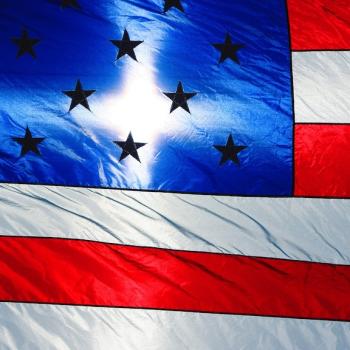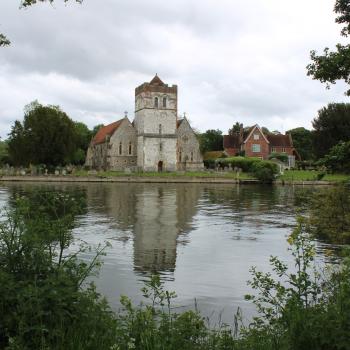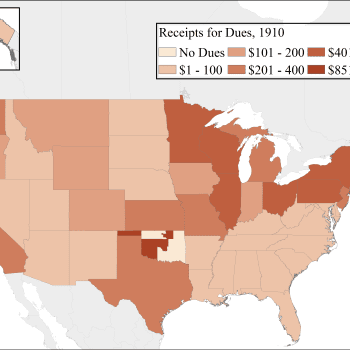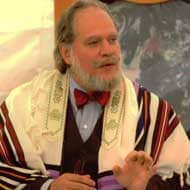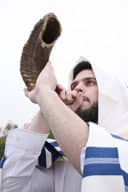 We do not greet each other at this time with "Happy New Year!" We are not ringing in the New Year. Rosh HaShanah, which falls on the first day of the 7th month, begins a period of preparation and prayer, tests and lessons. The High Holy Days and Sukkot and Simhat Torah are, as one group, a metaphor for life.
We do not greet each other at this time with "Happy New Year!" We are not ringing in the New Year. Rosh HaShanah, which falls on the first day of the 7th month, begins a period of preparation and prayer, tests and lessons. The High Holy Days and Sukkot and Simhat Torah are, as one group, a metaphor for life.
Rosh HaShanah does not mean "new year," for the word Rosh means head. The Head is where we plan, where we process, where we prepare. Rosh HaShanah is that heady Holy Day of process. We look back and ask the hard questions. How have we strayed from our path? What baggage have we been carrying around? Whom have we hurt? How have our missteps, mistakes, missed opportunities missed the mark?
That is the Rosh in Rosh HaShanah. And the word Shanah rises from the name of the Holy Day and from our greetings of "Shanah Tovah" to become a teachable moment. For Shanah has to do with learning. And it has to do with change. Rosh HaShanah, that heady Holy Day is a punctuation mark on growth and learning. If we enter into the day with fear and trembling it becomes a question mark of growth. For those to whom the Holy Day has not been imbued with meaning, the punctuation mark is simply a parenthesis, an aside in their busy lives. If we approach the Holy Day with an open mind, that punctuation mark is the powerful exclamation point of promise for the future.
If Rosh HaShanah does not mean new year, if Rosh HaShanah means the heady time of growth and learning that will change our lives, how does it work, how can this day carry such power? The truth is that it does not unless we fill it with that power. Rosh HaShanah is the flame and we are the candle. If we do not allow ourselves to be touched, the flame will die out. And if we touch flame to wick a soulful flame lights our path. The day has power because of how we touch it and let Rosh HaShanah touch us. Wick and flame meet in an open-minded discourse when we sit with loved ones and share honestly, lovingly. Wick ignites flame when we honestly listen to each other and to the small voice within us.
When we greet each other this year with "Shanah Tovah," let us meditate on the meaning. "May this year be a year of good changes for us and for all humankind."
 One might think that with the powerful teaching imbedded in the words 'Rosh HaShanah' that there is nothing can follow such a heady holyday.
One might think that with the powerful teaching imbedded in the words 'Rosh HaShanah' that there is nothing can follow such a heady holyday.
But there is and we call it 'Yom Kippur,' 'Day of Atonement!' Traditionally the rabbis taught that this was the time when we stand up before G, our defenses down, prepared to atone for all the mistakes of the year. Yom Kippur is the HolyDay of the heart. Our hearts are laid bare as we drop the burdens of anger toward others, the baggage of our spiritual failures, the impediments of our own guilt. Whereas Rosh HaShanah has to do with a meeting of the minds, people coming together, Yom Kippur is the heartful meeting of each of us and G.
Modern rabbis have played with the word Atonement finding a depth of meaning beneath the surface. It is a day of At-One-Ment. This is the day when we gather the scattered fragments of our heart and soul and bring them back to oneness. Others teach that 'Yom Kippur' is the 'Day of Attunement.' This is the day when we receive our spiritual tune-up. We look back at our lives, allowing all feelings to bubble to the surface, some to be skimmed off, others to be returned to balance. Attuning is about finding our soul's balance. We do not measure, as we do on Rosh HaShanah; we simply strive through prayer and practice to find our balance, releasing the spiritual toxins from our souls and healing our hearts.
 And three days hence we begin the celebration of Sukkot. If Rosh HaShanah is the heady HolyDay and Yom Kippur the HolyDay of the heart, surely Sukkot is the holiday for hands. We build a Sukkah that represents the tents of the wilderness growth. It represents the fall crop harvests of hope before the long, cold, wet winter. The Sukkah represents the precarious nature of our lives and the strength to be found in frailty. We sit in our Sukkah and invite the ancient guests, the spirit ancestors and teachers of our past, to join modern physical friends and family in the Sukkah as we celebrate a realization of days past and a future of hope.
And three days hence we begin the celebration of Sukkot. If Rosh HaShanah is the heady HolyDay and Yom Kippur the HolyDay of the heart, surely Sukkot is the holiday for hands. We build a Sukkah that represents the tents of the wilderness growth. It represents the fall crop harvests of hope before the long, cold, wet winter. The Sukkah represents the precarious nature of our lives and the strength to be found in frailty. We sit in our Sukkah and invite the ancient guests, the spirit ancestors and teachers of our past, to join modern physical friends and family in the Sukkah as we celebrate a realization of days past and a future of hope.

